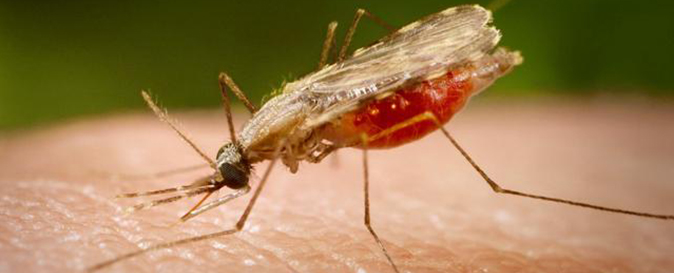The Minister for Health, Prof. Isaac Adewole, on Friday, April 13, 2018 said the prevalence rate of malaria has been reduced from 42 per cent in 2010 to 27 per cent in 2015.

He disclosed this at the Malaria Public Sector Stakeholders meeting on dissemination of the Achievements of the MAPS-C project of Africare, an NGO, in collaboration with Exxonmobil, in Abuja.
Adewole, who was represented by Dr Evelyn Ngige, Director, Public Health in the ministry, said that efforts put in combating malaria scourge in the country was yielding positive results, as recent surveys show progression.
According to the minister, Nigeria contributes about 27 per cent of the 260 malaria cases and 23 per cent of the 435,000 deaths recorded in 2016, according to the 2017 World Malaria Report.
Adewole said that in order to sustain the gains and sustain the danger of a reversible, there was a need to deploy innovative approach to prevent, diagnose and treat malaria.
“With an effective surveillance system, we could track our progress.
“We have embarked on actualisation of the basic healthcare fund which is meant to increase the physical space and overall financing of the health sector and lead to the achievement of the Universal Health Coverage (UHC),” he said.
Adewole, while appreciating Africare, said that the Malaria Prevention in MPN Suppliers Communities (MAPS-C) initiative was quite an impressive one.
The initiative, he explained, was an attempt to improve the quality of testing and diagnose malaria while also collating data through the introduction of a new technology, the Deki reader.
The technology, the minister added, was a specialised and integrated platform that uses an innovative approach to improve the accuracy of Rapid Diagnostic Testing (RDT) for data capturing and decision making.
Adewole listed the pilot states for the use of the technology as Akwa Ibom and Rivers.
He however implored Exxonmobile to expand it to other neighbouring areas of the benefitting states.
The minister called on all stakeholders in the health sector, especially the private sector, to collaborate with government in healthcare delivery as well as support malaria control efforts across the country.
Earlier, the Country Director of Africare, Dr Doherty Orode, said that the initiative, which was without its challenges, was successful because of the Deki reader.
She explained that before the introduction of the technology in the communities where the project was implemented, malaria tests were not carried out before treatments and the use of chloroquine was still on.
Orode however said that progress was made later with the Deki reader, which allowed for getting results, accounting for commodities and also gave details which was stored in a portal for future reference.
She also said that a significant reduction in over treatment was achieved after the acceptability of the technology among members of the community.
The News Agency of Nigeria (NAN) reports that Africare is a US-based organisation which seeks to address African development and policy issues to build sustainable, healthy and productive communities.
NAN also reports that its MAPS-C project has served over 90,000 people in four local government areas in Akwa Ibom and Rivers states; namely Eket, Ibeno, Bonny and Ogu-bolo since 2011 to 2018.
By Veronica Dariya
